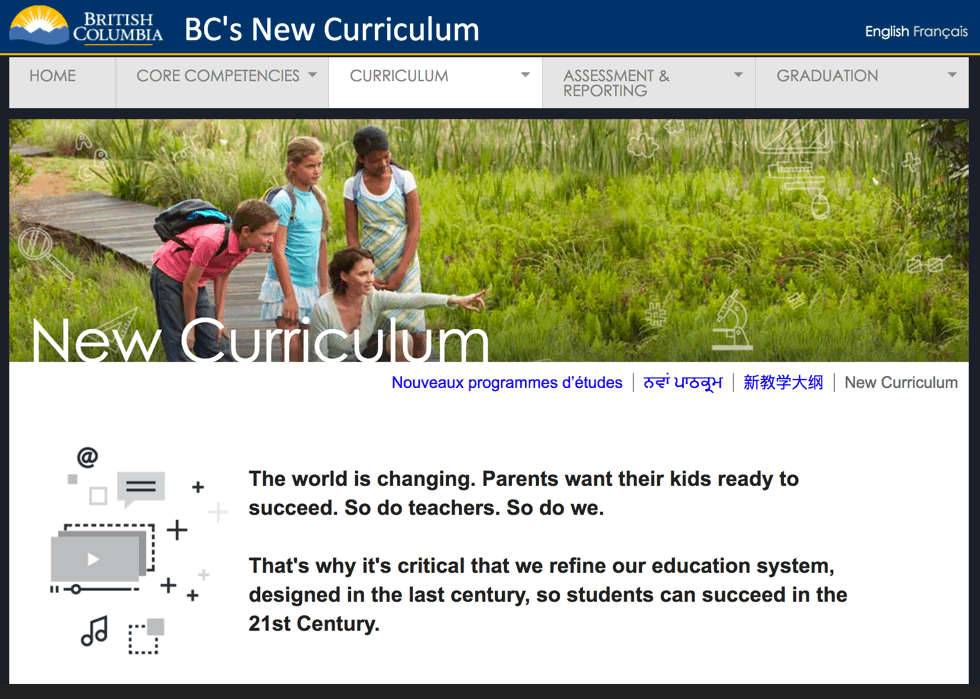Sky, Water, Earth is a joint project between the University of British Columbia, the Vancouver Space Centre, and the Vancouver Aquarium. The playlists touch on 4 themes, which are 1) Extreme Environments: Exploring marine and terrestrial extreme environments and their roles as analogues for space-based research and exploration; 2) Water: Maintaining a healthy water system is crucial to survival; 3) Sustainability: Living sustainably is the key to long term space travel and living on Earth; 4) New Discoveries: Reflecting on the role of youth in scientific discovery and research.
The playlist approach is reflective of the core mandate of the new British Columbia Curriculum as outlined by the BC Ministry of Education. The new curriculum aims to help students learn by exploring their interests and passions. Whether it’s computers, hockey, or art, passion is a motivator for students. The Ministry recognizes the importance to connect learning activities to students’ interest to help them excel in the classroom.

This close fit between the new curriculum and the DML connected learning approach signals the potential interest from highschool teachers to integrate the playlists into their lessons plans or promote the playlists to their students as extra curricular activity. We also identified home learning parents (and youths) as potential users. This group of parents also place greater emphasis on utilizing their children’s interests to guide their own learning pathway. For our first focus group, we invited high school teachers, home learning association coordinator, home learning parent, and high school curriculum developers.
We also connected with Point Defiance Zoo & Aquarium which is a single LRNG “node” that is not connected to a city. We made a note of some issues they faced:
- How to maintain the project with limited ongoing resources: There is no ongoing dedicated staff to evaluate the submitted Show and Proofs or to actively engage with the learners to foster a sense of community.
- How to increase the playlist discoverability?
- How to overcome current limitations of the platform? For instance, the inability to communicate with the learner to provide encouragement or guidance until the learners have completed a badge.
As we move forward, we continue to work with various internal departments to Increase the badge currency. We are reaching out to program coordinators at UBC so youths with the appropriate badge may be fast tracked in the application process. We hope to secure ongoing one-on-one interview time with graduate student and professors as one of the opportunities.
We are also exploring additional platforms to supplement LRNG. The platforms would have capabilities such peer-to-peer interaction and peer evaluation. The additional affordances would mean providing feedback is not solely relied upon a handful of subject matter experts. Some platforms we have explored include https://hypothes.is/, Collaborative Learning Annotation System (video annotation), and edX Edge (self-hosted edX platform). We are mindful each additional platform requires the learner to spend time to become familiar with a new environment. This may be mitigated by creating an onboarding playlist where the learner is awarded a badge upon successfully signing up for an account and completing the first task on the platform.
As we fine tune the XPs, we aim to incorporate Indigenous perspectives and knowledge in the playlists by incorporating Indigenous ways of knowing and local knowledge as sources of information.